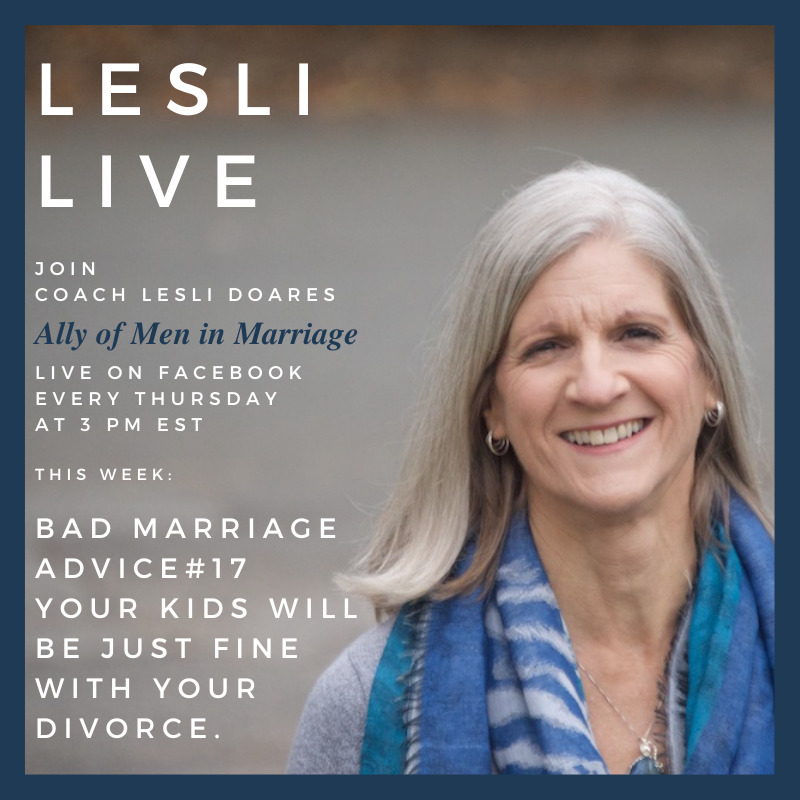Yes, children are resilient. That doesn’t mean you don’t do your best to protect them from harm. Car seats, bike helmets, staying in your yard, meeting their friends’ parents, holding their hand as you cross the street. But divorce? Well, they’ll be okay.
Eventually. Maybe. But please don’t believe it will be easy or painless.
Children can survive car wrecks too, but you don’t purposefully drive into a wall at 60-miles per hour to put it to the test.
Yes, some marriages need to end. And sometimes children are better off when their parents split. But those are the exceptions, not the rule.
Research shows that children who live in high-conflict home situations do better in many life categories after a divorce. But that is because the conflict stops. This can happen without having to end the marriage.
I know this isn’t a popular position. But it is the one supported by research. Because divorce is disruptive to their lives.
And it doesn’t matter how old the child is when the divorce happens.
Humiliating Your Husband (or Anyone Else) Isn’t Loving
Just because men as a whole have been privileged, it doesn’t mean an individual man is less deserving of being treated humanely. Especially not one you promised to love, honor, and cherish.
It Takes Two Yeses to Marry But Only One to Divorce
If you aren’t actively taking care of your marriage, it’s at risk of failing. You might think everything is okay, or at least not so bad that you need to take action, but your wife may think otherwise. It doesn’t mean that her perspective is 100% accurate but...
If She’s Told You Once, She’s Told You a Thousand Times
The dictionary defines nagging as ‘persistently annoying or finding fault with someone’. Another definition is ‘to annoy someone by constant demands or complaints’. Is this a dynamic in your marriage? If it is, you need to address it now. The longer it goes on, the...
My client Julia was 27 when her parents divorced. She had no idea there were problems big enough to end the marriage over. She felt like her entire childhood had been a lie. She was really struggling trusting herself after realizing her experience was not what she thought it was.
It might be better for very young children who never really had the familiarity of having one house with access to both parents every day. But even they can end up struggling with the fall out, especially if their parents don’t get along.
I can still remember the day my dad told me and my sisters that he was leaving. I knew that everything wasn’t perfect between my parents, but this came out of the blue for me. I remember thinking it must be my fault. If I hadn’t fought with one of my sisters so much, he wouldn’t be moving out. Taking the blame is common for children.
And their split impacted how I behaved in my later romantic relationships. I was both insecure about my worth and terrified of being left again. I mean, if I wasn’t good enough for my dad to stay, what man would want to. So I alternated between holding on too tight and pushing my partners away.
I knew they would eventually leave. It wasn’t an “if” but a “when”. So I would do things to make that happen.
My parents both moved on to other partners, but I was picking up the pieces for years. And even though I have been in a good marriage for 36 years, the fear of being abandoned again hasn’t ever really gone away.
From the outside, it looks like I have overcome the pain of my parents divorce. And most of the time I have. But there are still moments when that girl sitting at the kitchen table hearing her dad say goodbye is sitting at mine.
That is the legacy many children of divorce experience. And it continues through the generations.
If you want to change that legacy, then schedule a 5-Star Relationship Consultation today.
Around the Web This Week

ARE YOU SABOTAGING YOUR SEX LIFE?
BAD MARRIAGE ADVICE: YOUR KIDS WILL BE OKAY IF YOU DIVORCE









